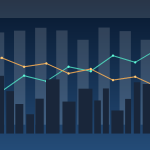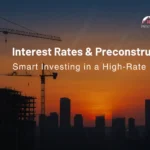Introduction: The Real Estate Dilemma in 2025
In 2025, investors and end-users alike face a tough choice: should you buy a pre-construction property or opt for a resale home? With rising interest rates, ongoing supply challenges, and rapidly shifting market dynamics, this decision has become more critical than ever. Whether you’re an investor looking to maximize ROI or a first-time buyer aiming to secure long-term value, understanding the pros, cons, and current trends of both pre-construction and resale can help you make the smartest move.
This guide breaks down the benefits, risks, costs, timelines, and strategies for both options—giving you a clear understanding of which investment may suit your goals in 2025.
Discover top Toronto pre-construction condos for investment and end-user opportunities across the GTA.
Chapter 1: Understanding the Basics
What Is a Pre-Construction Property?
A pre-construction property is a home or condo purchased before it’s built, typically from a developer’s floor plans or model units. Buyers sign a contract and pay a deposit, but won’t take possession for months—or even years.
Common Types:
High-rise condominiums
Townhouses
Detached or semi-detached homes in new subdivisions
Browse exclusive listings of pre-construction condos in Toronto and get early access to major developments.
What Is a Resale Property?
A resale home is an existing property that is already built and occupied—or has been in the past. Buyers can tour it, inspect it, and close the transaction within a standard timeframe (30–90 days).
Explore stunning new Etobicoke pre-construction condos perfect for first-time buyers and investors.
Common Types:
Detached homes, condos, townhomes
Typically purchased through MLS® listings
Located in mature or established communities
Chapter 2: The 2025 Real Estate Landscape in Canada
Market Factors Shaping Decisions
In 2025, the Canadian housing market is influenced by several macroeconomic and policy factors:
Interest Rate Cuts: The Bank of Canada has begun easing rates, sparking renewed buyer interest.
Housing Affordability Pressure: Home prices are still high, especially in Toronto, Vancouver, and other urban centers.
Government Incentives: Some provinces offer first-time buyer rebates, development fee reductions, or GST/HST deferrals for new builds.
Rental Demand Growth: Immigration and lack of housing supply have pushed rental rates higher, increasing investor appetite.
With all this in play, both pre-construction and resale options present unique opportunities—and risks.
Check out the latest pre-construction homes in Hamilton with strong growth and rental potential.
Chapter 3: Pros and Cons of Pre-Construction Properties in 2025
✅ Advantages
1. Lower Upfront Investment
Most pre-construction purchases require only a deposit structure of 15–20% spread over months or years, allowing for manageable cash flow.
2. Locked-In Pricing
You lock in today’s price and benefit if property values rise before closing.
3. Customization Options
Buyers can often choose finishes, layouts, and upgrades, adding personalized value.
4. Warranty Coverage
New homes in Ontario are protected by Tarion Warranty, covering major systems, workmanship, and structure.
5. Modern Features
Expect smart technology, energy efficiency, and modern architecture—all highly desirable for future resale or rental.
6. No Immediate Mortgage
You don’t start mortgage payments until the home is ready, giving you time to save, plan, or invest elsewhere.
Discover elegant Markham pre-construction homes in a vibrant and diverse community.
❌ Disadvantages
1. Delayed Occupancy
Closings are often 2–4 years away, with possible construction delays pushing that even further.
2. Uncertain Market Conditions
Market corrections or interest rate changes can affect the value of your property by the time it’s built.
3. No Inspection
You buy based on floor plans and developer reputation—meaning there’s some uncertainty in the finished product.
Invest in high-demand Mississauga pre-construction condos with excellent transit and amenities.
4. Rising Closing Costs
Pre-construction homes often come with development charges, levies, HST, and other closing fees not typically applicable to resale homes.
5. Limited Financing Options
You’ll need mortgage approval closer to occupancy, which could become complicated if lending rules tighten.
Secure a property in one of the most promising suburbs with our Richmond Hill pre-construction developments.
Chapter 4: Pros and Cons of Resale Properties in 2025
✅ Advantages
1. Immediate Occupancy
You can move in or rent it out within weeks—ideal for time-sensitive buyers or investors.
2. Transparent Market Value
You can compare similar homes sold recently, making it easier to determine fair market value.
3. Established Neighbourhoods
Resale properties are usually in mature communities with existing schools, transit, parks, and amenities.
4. Ability to Inspect
You can tour the home, conduct a professional inspection, and identify any repair needs before buying.
5. Renovation Upside
Strategic upgrades can increase property value significantly, offering additional equity-building potential.
Stay informed on Canada’s real estate market through the latest updates on our Preconstruction Blog.
❌ Disadvantages
1. Higher Upfront Costs
You’ll need your down payment (typically 20%) plus closing costs all at once, often within 60–90 days.
2. Bidding Wars Still Exist
Especially in popular cities like Toronto, multiple-offer situations can push prices beyond appraised values.
3. Higher Maintenance Costs
Older homes may require immediate or near-future repairs—roof, furnace, plumbing, electrical, etc.
4. Limited Customization
You get what you buy. Any design preferences require additional renovation costs.
Explore or compare MLS® listings in Greater Toronto Area for sale and rent on one of the most trusted platforms in Ontario.
Chapter 5: Cost Comparison – Pre-Construction vs Resale in 2025
| Cost Element | Pre-Construction | Resale |
|---|---|---|
| Down Payment | 15–20% (spread out) | 20% upfront |
| HST | Often included or extra | Usually exempt (if not new) |
| Land Transfer Tax | Due at closing | Due at closing |
| Development Fees | Yes (can be $10,000–$60,000+) | No |
| Lawyer Fees | Higher due to multiple closings | Standard |
| Mortgage Payments | Deferred until occupancy | Begin immediately |
| Maintenance | None during construction | Immediate & ongoing |
Chapter 6: Investor Perspective – Which Option Offers Higher ROI?
Pre-Construction:
Appreciation Gains: Buying low in 2025 could yield gains by 2028–2029 if the market rises.
Rental Strategy: Once built, units are often in high demand due to modern features.
Tax Planning: Can defer income and reduce taxes until sale or rental begins.
Read expert takes and investment strategies on the Wedu real estate blog updated regularly with GTA trends.
Resale:
Cash Flow Ready: Immediate rental income generation.
Renovation Flip: Value-add through upgrades = quicker ROI.
Appreciation Too: Located in prime areas, resale homes continue to appreciate steadily.
Verdict:
Short-Term Income? Go Resale.
Long-Term Growth & Value Preservation? Go Pre-Construction.
Access comprehensive Toronto MLS and real estate listings including condos, townhomes, and new builds.
Chapter 7: Buyer Profile – Who Should Choose What?
| Buyer Type | Best Option |
|---|---|
| First-Time Homebuyer | Pre-construction (lower entry cost, new warranty) |
| Investor with Long-Term Vision | Pre-construction (capital appreciation) |
| Investor Looking for Immediate Rental Income | Resale |
| Family Needing Space ASAP | Resale |
| Buyers Wanting Modern Design | Pre-construction |
| Renovators or Flippers | Resale |
Chapter 8: Risk Mitigation Strategies
For Pre-Construction Buyers:
Buy from reputable, established builders
Read the fine print: watch for caps on development fees
Get mortgage pre-approval AND plan for rate changes
Consider assignment sale flexibility in contract
For Resale Buyers:
Always get a home inspection
Budget for at least 5–10% unexpected repairs
Research local market trends before bidding
Avoid emotional overbidding in hot markets
Chapter 9: The Hybrid Strategy – Best of Both Worlds?
Some savvy investors use a hybrid strategy:
Buy pre-construction condos for future gains
Buy resale income properties for immediate cash flow
Refinance resale property later to fund future pre-construction projects
This approach balances risk, diversifies returns, and maintains cash flow while building equity.
Conclusion: Which Is the Better Investment in 2025?
There’s no one-size-fits-all answer. It depends on your:
Financial situation
Investment timeline
Risk appetite
Lifestyle needs
Choose Pre-Construction if you:
Want to lock in pricing now
Are comfortable with a longer timeline
Prefer a new, modern product
Want to build value over time
Choose Resale if you:
Need a home or rental unit right away
Prefer established neighborhoods
Can handle upfront costs
Want transparency and immediate use
Whichever you choose, 2025 offers tremendous opportunity—if you plan smart, research thoroughly, and act confidently.







